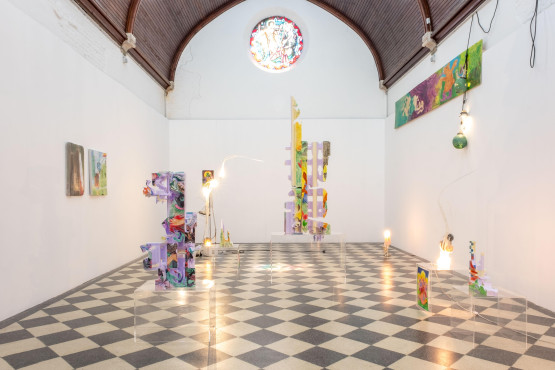
Curatorial Studies is a one-year
postgraduate programme at KASK & Conservatorium/School of Arts in Ghent, Belgium.
For more information, please email curatorialstudies@hogent.be
Who is this for?
Curatorial Studies at KASK & Conservatorium/ School of Arts is an intensive one-year English-language postgraduate course aimed at applicants with an MA or equivalent experience in the arts, humanities or sciences and a keen interest in contemporary art. Established in 1999, Curatorial Studies is the only postgraduate curatorial programme in Belgium, benefitting from a unique partnership between an art school, a university, a kunsthalle and a museum.
At Curatorial Studies, our aim is to provide participants with a comprehensive understanding of key positions, vocabularies, and research methods in the curatorial. By bringing together the knowledges and experiences of a diverse network of cultural practitioners and institutions, you will be welcomed in an environment where multiple perspectives and discourses can thrive, challenge,
question, and enrich one another.
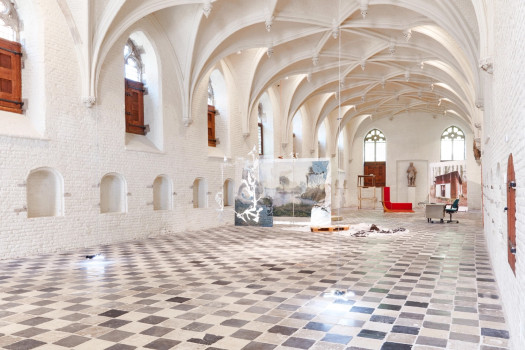
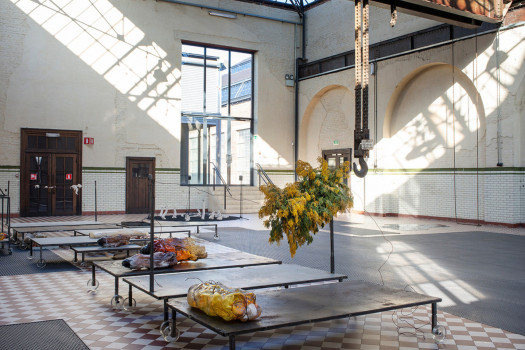
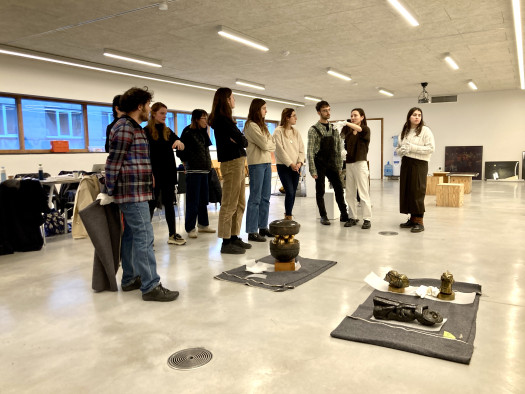
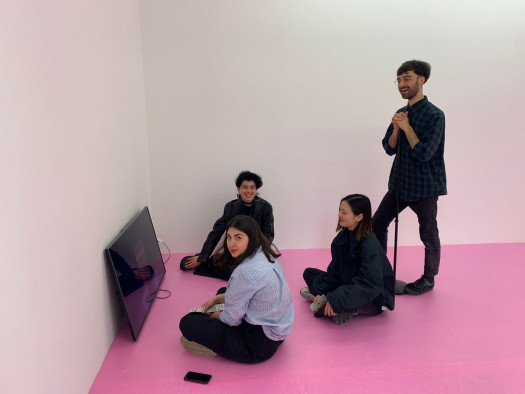
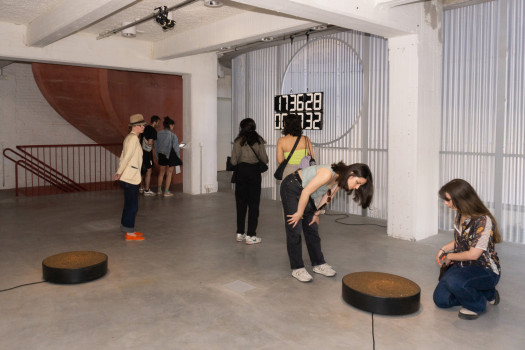
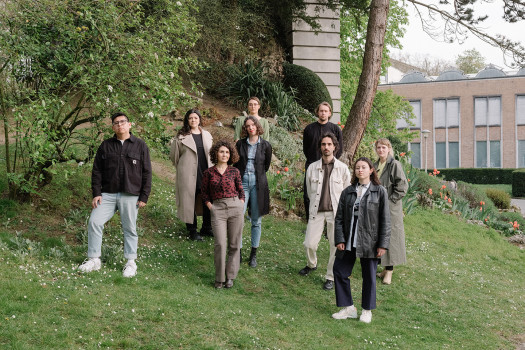
Throughout the programme, we will explore how artworks exist and
transform in different spaces and temporalities. This includes studying
works in storage, examining conservation practices, discussing
exhibitions and events, inquiring into diverse audiences, reflecting on
curatorial writing and criticism and looking into various theoretical and
socio-political contexts. By navigating these spaces, we hope you will
develop the skills to discern entrenched power structures and challenge
essentialist discourses that permeate the Western art world. Together, we
will explore the dynamics of artworks within the art system, considering
their circulation, freedoms and limitations, reflecting on the significance
of materials, and examining how these elements shape our connection to
both the living and nonliving world.
Curatorial Studies is not solely focused on theoretical learning. We
strongly encourage participants to actively engage in the curatorial practice
through exhibitions, publications, and events. We place great
emphasis on the history and theory of exhibitions as well as, ensuring
that you are well-versed in the most up-to-date debates within the
contemporary curatorial field, particularly as they intersect with
social, political, and ethical issues.
At Curatorial Studies, participants are encouraged to look at the world openly, to turn their attention to what is desirable, rather than return to predetermined formats and fixed habits of mind. Students adopt values which place meaningful participation and engagement over knowledge production. The programme treats the curatorial as a process that decouples the grip of the status quo from the conditions of artistic production: through fair practice, by thinking along with artists, and by extending their curatorial work to the pertinent questions and struggles of our times.
In line with this perspective, the programme encourages a broader
comprehension of curating that surpasses the conventional notion of
‘curare’, the tending to objects. Instead, it embraces curating as a means to
appreciate the development of the world and its diverse potential futures.
Central to this programme is a focus on group-mindedness, selforganisation,
and collective authorship. Rather than adhering to a single definition of curating, we emphasise the exploration of new ways of coming together, while also recognising the challenges and biases that arise from unequal labor distribution. We continually ask, “Who is included when we say ‘we’?” Through collective infrastructures, participatory processes, and models of shared responsibility, we underline the importance of experimentation, trust, openness, and emotional engagement—crucial elements for unlearning and expanding the possibilities within traditional curatorial practices.
In this programme, curating becomes an act of kinship, a practice of
solidarity, and a cooperative space for critical discourse. We don’t see
collectivity as a single unified creative body but as a processual creative
endeavour, where group work is a dynamic and evolving process that
opens new horizons in curatorial practice. Our long-standing programme
has a wide network of alumni/ae who continue to contribute actively to
the cultural field and engage with the programme’s current participants.
In the spirit of togetherness, the programme has not only led to the formation of collectives but has also brought about long-lasting collaboration and friendships among its participants.
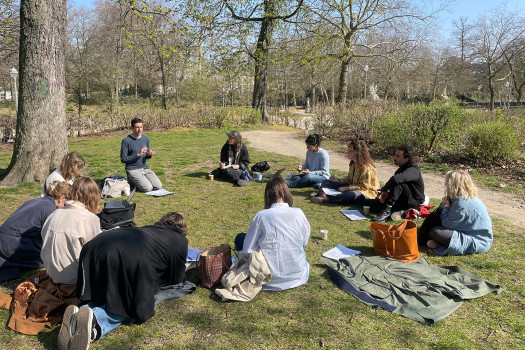
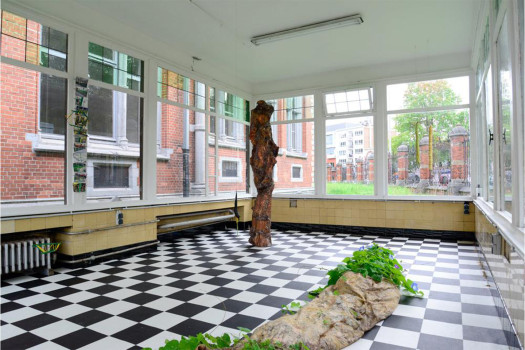
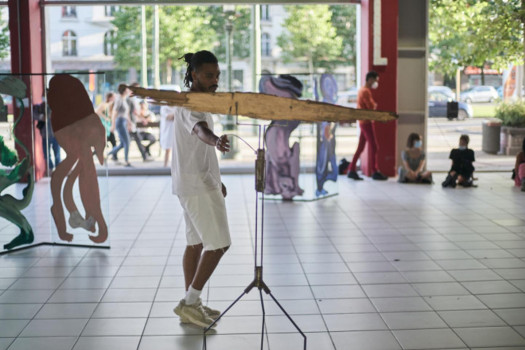
What will you be studying?
Curatorial Studies offers students a versatile and challenging platform that invites critical reflection on artistic and curatorial practices. By drawing on the expertise of a broad and diverse network of cultural practitioners and institutions – and thus making room for various theoretical, geographical, historical, and socio-political contexts and their intersections – the course aims to facilitate an environment where a multiplicity of perspectives and discourses can thrive.
Curatorial Studies not only encourages participants to develop their curatorial practice through the making of exhibitions, publications, and events—with a final collective project acting as a culmination point (‘Graduation Project’) – it also pays attention to the history and theory of exhibitions. Through a mix of lectures, seminars, workshops and independent research, students become conversant with the most up-to-date debates within the contemporary curatorial field, particularly as these intersect with social, political, and ethical issues.
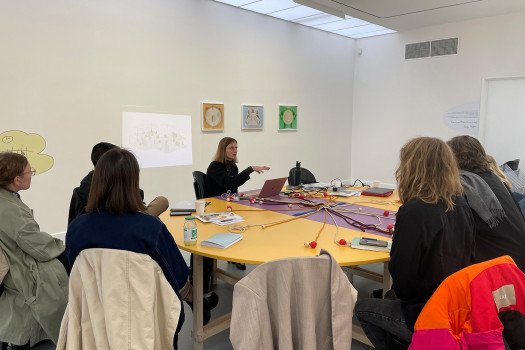
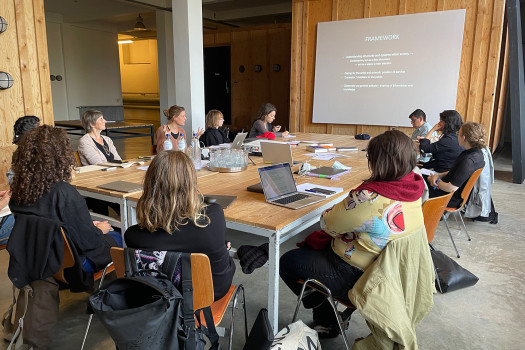
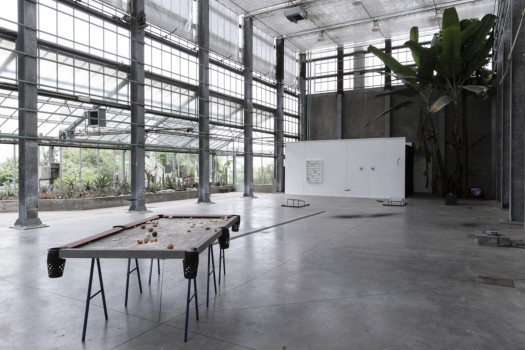
Application Guidelines
If you wish to enrol for the Curatorial Studies postgraduate programme, please submit the necessary documents to be invited to the orientation interview (see application guidelines below).
Two interview rounds are organised per academic year.
Application deadlines and interviews
Info session April 27, 2025, 10:00 AM to 3:00 PM on campus
- Deadline for File Submission (May Session): May 2, 2025, 11:59 PM
- Interview Session (May): May 14, 2025
Info session June 28, 2025, 10:00 AM to 1:00 PM on campus
- Deadline for File Submission (August Session): August 15, 2025, 11:59 PM
- Interview Session (August): August 25, 2025
Based on your dossier, the orientation committee will decide whether or not to invite you for an intake interview or audition. We will notify you of this decision by e-mail.
Application Procedure
We organise 2 interview sessions. Selected candidates who meet the requirements will be invited for an interview.
The interview will focus mainly on 3 aspects of your application documents: your letter of motivation, your CV and your curatorial project proposal. Especially the candidate’s motivation and project proposal will be discussed. The committee will gain insight in the candidate’s competences through this interview and will advise whether a candidate can start on the basis of this interview.
The committee can decide to give a negative advice with regards to attending an interview if the submitted application’s content demonstrates clearly that the candidate does not have the required profile or competences to start the postgraduate programme.
We will let you know by e-mail no more than two working weeks after your interview or audition whether you passed or failed the test. If you pass, you can continue with the registration procedure. If you have not received a message after two weeks, please feel free to contact the admissions officer by mail.
- Consult the admission requirements.
- Register for an admission test or orientation interview via webreg.hogent.be.
- You will be notified about the interview details in due time
- After the interview, you will receive an acceptance notification, and you will be invited to complete your enrolment online
- Do you have a question? Contact the student’s office
Practical information
Study programme
Study costs
Study and learning track counselling
Values
- Exploring (un)common grounds: How do we engage with different perspectives from a broad and diverse network of artists, curators, institutions and initiatives?
- Recentering attention: How do we create new habits of mind and counter ‘positive violence’ (over-achievement, overproduction, over-communication)?
- Rethinking terminology: How do we re-examine the role of language, terminology, communication and poetics in curatorial work?
- Making room: How do we provide new readings of collections, and reinterpretations that open new notions of history, permanence and universality?
- Creating affinities: How do we think alongside artists rather than explain or present their work?
- Playing it fair: How do we incorporate fair practices in curatorial work?
- Thinking speculatively: How do we anticipate situations that are yet unknown (e.g. questions of accessibility; how do we suddenly close and re-open; how do we curate proactively)?
- Rethinking art through reproduction: How can we understand forms of care-work, not as peripheral moments in the life of artists and curators, but as integral to artistic and cultural production?
A Note on Accessibility
- We are committed to creating an inclusive and accessible programme that allows all individuals, including those with disabilities, to fully engage.
- The programme will include short breaks, and you are encouraged to take additional breaks as needed.
- Accessible restrooms are available on the ground floor and on the first floor.
- There are two elevators to the first floor where are classroom is located.
- If you have a disability and require specific accommodations to fully participate, please reach out to us at curatorialstudies@hogent.beand we will do our best to meet your needs.
- While we do not offer scholarships, we are happy to provide a letter of recommendation if you are seeking external funding to support your participation in the programme.
Resources & Links
Young Curators Programme
The Young Curators Programme is a fellowship programme designed to provide opportunities for emerging Belgium-based curators working in the context of Flanders and Fédération Wallonie- Bruxelles. Fellows are granted approximately two-month-long terms in Venice. They are expected to conduct research while gaining experience and exposure by actively taking part in the life of the Belgian Pavilion at the International Art Exhibition – La Biennale di Venezia.
KASK4Palestine
KASK student community organising around Palestine.
Curators Anonymous
Curators Anonymous is a non-profit, non-affiliated association of curators in Belgium, founded in 2019 offering a platform for exchange on pressing issues affecting curators – their socio-economic and legal status, professional environment and societal roles.
Juist is Juist
Juist is Juist (what’s right is right) defines clear and fair principles and practices for collaborating in the arts sector. For all disciplines. And for all parties involved. defines clear and fair principles and practices for collaborating in the arts sector, and gives you access to calculators, checklists, contract modules, diagrams and manuals.
Art, crisis and transition.
A Fair New World
*in the arts?!*
This publication is the result of A Fair New World?!, a research and development trajectory that ran from 2020 to 2022, in which Flanders Arts Institute has been exploring ways in which we can collectively shape the new world.
We focused on what change – fairer, more sustainable, more inclusive – can mean for the arts in Flanders. We explored what we as a field of engaged arts professionals can do to make that happen.
State of the Arts
State of the Arts Fairs Arts Almanac 2019 offers a critical reflection on fairness in the complex relationships between artistic, political and economic spheres.
Engagement
Engagement is an artist-led movement tackling sexual harassment, sexism and abuse of power in the Belgian arts field.
Caveat
Caveat is a collective research into the ecology of artistic practice. It is initiated by Jubilee, in partnership with Open Source Publishing, No New Enemies and Été 78. Caveat tries to find more sustainable, balanced ways of operating within the existing legal frameworks.